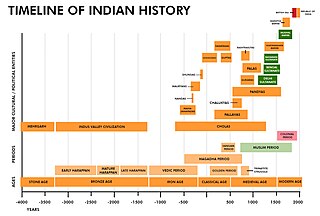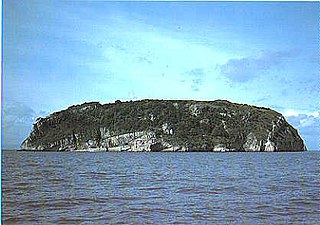
This is a list of chancellors of the University of Oxford in England by year of appointment. [1] [2] [3]

This is a list of chancellors of the University of Oxford in England by year of appointment. [1] [2] [3]

Roy Harris Jenkins, Baron Jenkins of Hillhead, was a British politician and writer who served as the sixth president of the European Commission from 1977 to 1981. At various times a Member of Parliament (MP) for the Labour Party, Social Democratic Party (SDP) and the Liberal Democrats, he was Chancellor of the Exchequer and Home Secretary under the Wilson and Callaghan Governments.
Oxford University Press (OUP) is the university press of the University of Oxford. It is the largest university press in the world. The first book was printed in Oxford in 1478, with the Press officially granted the legal right to print books by decree in 1586. It is the second oldest university press after Cambridge University Press, which was founded in 1534.

This is a timeline of Indian history, comprising important legal and territorial changes and political events in India and its predecessor states. To read about the background to these events, see History of India. also see the list of governors-general of India, list of prime ministers of India and Years in India.
This is a timeline of German history, comprising important legal and territorial changes and political events in Germany and its predecessor states. To read about the background to these events, see History of Germany. See also the list of German monarchs and list of chancellors of Germany and the list of years in Germany.

Steep Holm is an English island lying in the Bristol Channel. The island covers 48.87 acres (19.78 ha) at high tide, expanding to 63.26 acres (25.60 ha) at mean low water. At its highest point it is 78 metres (256 ft) above mean sea level. Administratively it forms part of the unitary authority of North Somerset within the ceremonial county of Somerset; between 1 April 1974 and 1 April 1996, it was administered as part of Avon. Nearby is Flat Holm island, part of Wales.

George Edward Peter Thorneycroft, Baron Thorneycroft, was a British Conservative Party politician. He served as Chancellor of the Exchequer between 1957 and 1958.
Philip Jenkins is a professor of history at Baylor University in the United States, and co-director for Baylor's Program on Historical Studies of Religion in the Institute for Studies of Religion. He is also the Edwin Erle Sparks Professor of Humanities Emeritus at Pennsylvania State University (PSU). He was professor and a distinguished professor of history and religious studies at the same institution; and also assistant, associate and then full professor of criminal justice and American studies at PSU, 1980–93.
New Shoreham, sometimes simply called Shoreham, was a parliamentary borough centred on the town of Shoreham-by-Sea in what is now West Sussex. It returned two Members of Parliament (MPs) to the House of Commons of England from 1295 to 1707, then to the House of Commons of Great Britain until 1800, and finally to the House of Commons of the Parliament of the United Kingdom from 1801 until it was abolished by the Redistribution of Seats Act 1885, with effect from the 1885 general election.

Hensol Castle is a castellated mansion in the Gothic Revival style dating from the late 17th century or early 18th century, now a wedding and conference venue for The Vale Resort. It is located north of Clawdd Coch and Tredodridge in the community of Pendoylan in the Vale of Glamorgan, Wales. It is a Grade I listed building and its park is designated Grade II on the Cadw/ICOMOS Register of Parks and Gardens of Special Historic Interest in Wales.
Events from the year 1742 in Great Britain.

Robert de Stratford was an English bishop and was one of Edward III's principal ministers.
The 1925 University of Oxford election for the position of Chancellor was called upon the death of the incumbent Chancellor, George Curzon, 1st Marquess Curzon of Kedleston on 20 March 1925.

Sir Thomas Gladstone, 2nd Baronet was a Tory politician from Liverpool, who returned to the ancestral seat in the Highlands to become a country squire. Less well known than his brother William, Tom, as he was known, was both a principled and honest man who supplied his brother with good advice. Their contrasting characters informed rising social and economic liberalism during the Victorian period. Tom was parsimonious, even mean, while his brother was constantly battling family debts.
John Carpenter (1399–1476) was an English bishop, provost, and university chancellor.

Daniel Robert Woolf is a British-Canadian historian and former university administrator. He served as the 20th Principal and Vice-Chancellor of Queen's University in Kingston, Ontario, Canada, a position to which he was appointed in January 2009 and took up on 1 September 2009. He was previously a professor of history and the Dean of the Faculty of Arts at the University of Alberta. He was reappointed to a second 5-year term in 2013. In late 2017, Woolf announced his intention not to serve a third term and to retire from university administration at the end of his second term in 2019. He was succeeded by Patrick Deane, and became Principal Emeritus.
David Durell D.D. (1728–1775) was Principal of Hertford College, Oxford, from 1757 to 1775, Vice-Chancellor of the University of Oxford from 1765 to 1768, and a noted Old Testament scholar of his day.
Alison Grant Milbank is a British Anglican priest and literary scholar specialising in religion and culture. She is Canon Theologian at Southwell Minster and a professor at the University of Nottingham in the Department of Theology and Religious Studies.
William de Montfort was an English medieval Canon law jurist, singer, dean, and university chancellor. He was apparently the son of Peter de Montfort.

Brownsea Castle, also known historically as Branksea Castle, was originally a Device Fort constructed by Henry VIII between 1545 and 1547 to protect Poole Harbour in Dorset, England, from the threat of French attack. Located on Brownsea Island, it comprised a stone blockhouse with a hexagonal gun platform. It was garrisoned by the local town with six soldiers and armed with eight artillery pieces. The castle remained in use after the original invasion scare had passed and was occupied by Parliament during the English Civil War of the 1640s. By the end of the century, however, it had fallen into disuse.